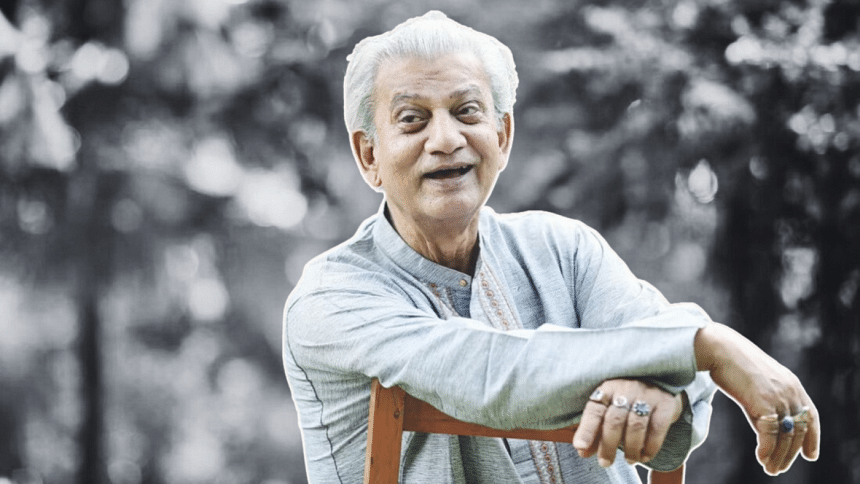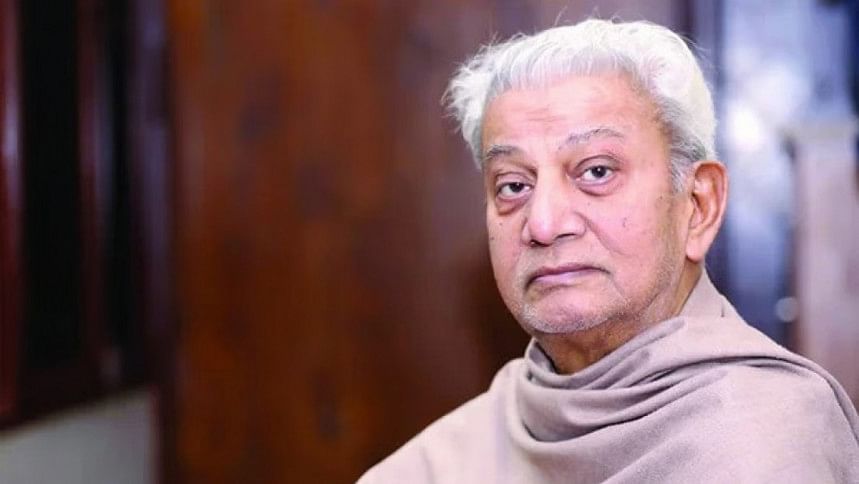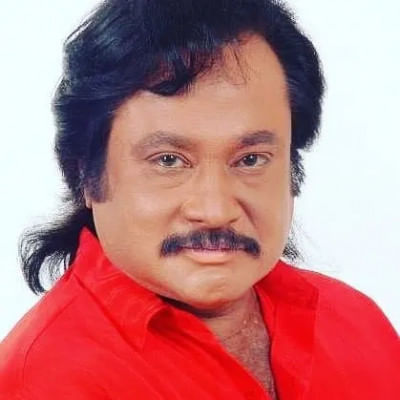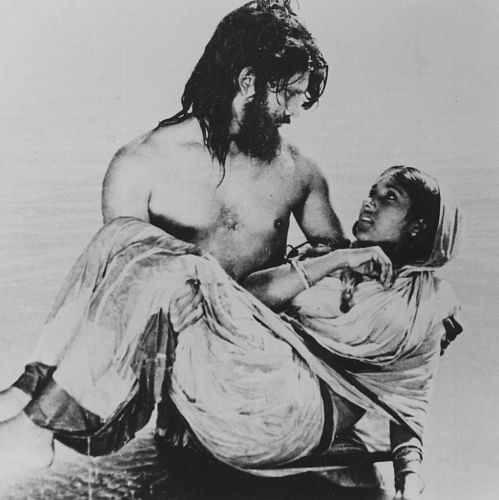‘A symbol of excellence and integrity’: Uzzal remembers Prabir Mitra

Prabir Mitra, one of Bangladesh's most beloved and versatile actors, passed away at the age of 81 last night at Dhaka's Square Hospital. His death, confirmed by his son, Sifat Islam, marks the end of an era for an actor whose filmography spans more than 400 titles, ranging from leading roles to deeply impactful character portrayals.
Mitra's cinematic journey began with the 1969 film "Jolchhobi," though the movie wouldn't see its release until January 1, 1971. It was the start of an illustrious career that would see him evolve from lead roles to becoming one of the industry's most reliable and respected character actors.

Known for his ability to breathe life into every role, Mitra left an indelible mark on Bangladeshi cinema, delivering memorable performances in iconic films like "Titash Ekti Nadir Naam", "Jibon Trishna", "Fariyad", "Rokto Shopoth", "Charitrohin", "Angaar", and "Fakir Majnu Shah".
Ashraf Uddin Ahmed Uzzal, a longtime friend and colleague, reminisced about their early days in the industry. "Prabir and I started around the same time, both coming from the stage before we entered the film industry. He began with theatre and transitioned to the silver screen, much like I did," Uzzal told The Daily Star. "We were both young, full of energy, and passionate about acting. What set Prabir apart, though, was his unwavering authenticity. You could always trust him to deliver a performance that felt real, regardless of the character."

Mitra quickly became the go-to actor for critical supporting roles, which, as Uzzal highlighted, are the backbone of any successful film. "Cinema is not just about the heroes and heroines," Uzzal said. "The strength of a film often lies in its supporting cast, and Prabir excelled at those roles. Directors, producers, and fellow actors all trusted him to carry the weight of pivotal characters. He became a name everyone could rely on."
It wasn't just Mitra's acting prowess that earned him this trust; it was also his reputation as a kind, straightforward individual. Uzzal reflected, "Prabir had a rare quality—he never made enemies. He maintained warm, friendly relationships with everyone, from the biggest stars to the technicians working behind the scenes. That's something you don't see often in this industry."

Despite his declining health in recent years, Mitra's legacy remained firmly intact. His absence from the screen only magnified the void he left in the industry. Uzzal emphasised, "Even though he couldn't act in his later years, the love people had for him never waned. He was more than just an actor—he was a symbol of excellence and integrity in our cinema."
Prabir Mitra's passing is not just a personal loss for his family but also a collective loss for Bangladesh's cultural and cinematic heritage. As Uzzal poignantly put it, "We didn't just lose a great actor; we lost a great man. But I have no doubt that the people of this country will continue to remember him. His performances will keep him alive in their hearts."

Mitra's first namaz-e-janaza will take place today after Zuhr prayers at the Bangladesh Film Development Corporation (BFDC), followed by a second janaza at Channel i. He will be laid to rest at Azimpur Graveyard, Dhaka.
Born on August 18, 1943, in Chandina, Cumilla, Mitra spent his formative years in Old Dhaka, where he discovered his love for acting during his school days. His first foray into the world of theatre was through Rabindranath Tagore's play "Dakghar," a performance that ignited a lifelong passion for the stage.
As the curtains close on a career that spanned over five decades, Prabir Mitra leaves behind a legacy that few can rival. He is survived by three sons and one daughter, but his true legacy will be the lasting mark he has left on Bangladeshi cinema—one that will endure for generations to come.

 For all latest news, follow The Daily Star's Google News channel.
For all latest news, follow The Daily Star's Google News channel. 







Comments